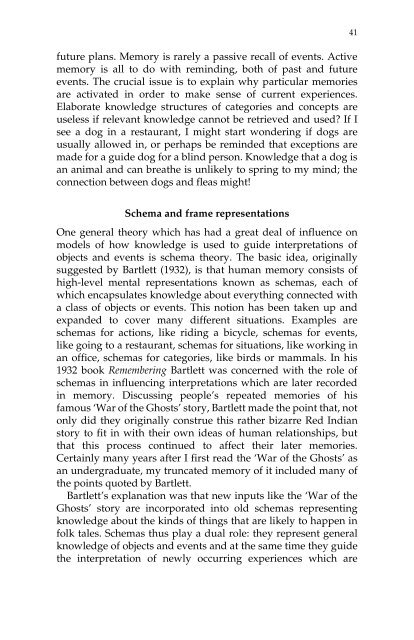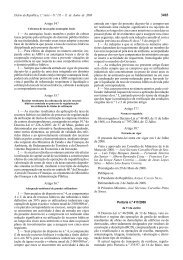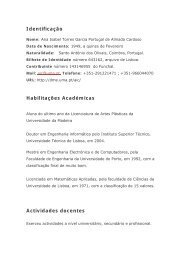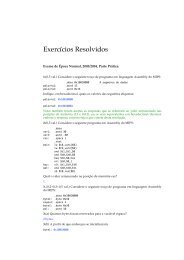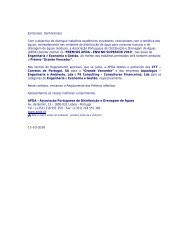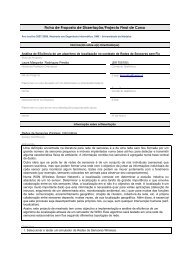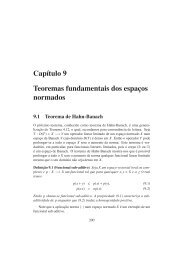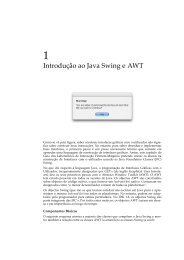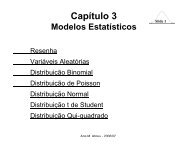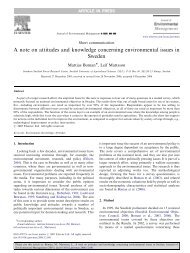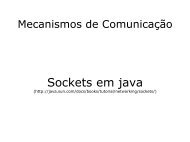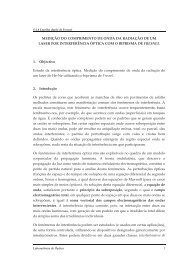Memory, thinking and language.pdf
Memory, thinking and language.pdf
Memory, thinking and language.pdf
You also want an ePaper? Increase the reach of your titles
YUMPU automatically turns print PDFs into web optimized ePapers that Google loves.
future plans. <strong>Memory</strong> is rarely a passive recall of events. Active<br />
memory is all to do with reminding, both of past <strong>and</strong> future<br />
events. The crucial issue is to explain why particular memories<br />
are activated in order to make sense of current experiences.<br />
Elaborate knowledge structures of categories <strong>and</strong> concepts are<br />
useless if relevant knowledge cannot be retrieved <strong>and</strong> used If I<br />
see a dog in a restaurant, I might start wondering if dogs are<br />
usually allowed in, or perhaps be reminded that exceptions are<br />
made for a guide dog for a blind person. Knowledge that a dog is<br />
an animal <strong>and</strong> can breathe is unlikely to spring to my mind; the<br />
connection between dogs <strong>and</strong> fleas might!<br />
41<br />
Schema <strong>and</strong> frame representations<br />
One general theory which has had a great deal of influence on<br />
models of how knowledge is used to guide interpretations of<br />
objects <strong>and</strong> events is schema theory. The basic idea, originally<br />
suggested by Bartlett (1932), is that human memory consists of<br />
high-level mental representations known as schemas, each of<br />
which encapsulates knowledge about everything connected with<br />
a class of objects or events. This notion has been taken up <strong>and</strong><br />
exp<strong>and</strong>ed to cover many different situations. Examples are<br />
schemas for actions, like riding a bicycle, schemas for events,<br />
like going to a restaurant, schemas for situations, like working in<br />
an office, schemas for categories, like birds or mammals. In his<br />
1932 book Remembering Bartlett was concerned with the role of<br />
schemas in influencing interpretations which are later recorded<br />
in memory. Discussing people’s repeated memories of his<br />
famous ‘War of the Ghosts’ story, Bartlett made the point that, not<br />
only did they originally construe this rather bizarre Red Indian<br />
story to fit in with their own ideas of human relationships, but<br />
that this process continued to affect their later memories.<br />
Certainly many years after I first read the ‘War of the Ghosts’ as<br />
an undergraduate, my truncated memory of it included many of<br />
the points quoted by Bartlett.<br />
Bartlett’s explanation was that new inputs like the ‘War of the<br />
Ghosts’ story are incorporated into old schemas representing<br />
knowledge about the kinds of things that are likely to happen in<br />
folk tales. Schemas thus play a dual role: they represent general<br />
knowledge of objects <strong>and</strong> events <strong>and</strong> at the same time they guide<br />
the interpretation of newly occurring experiences which are


